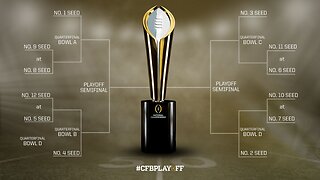What is FEDERALISM?
✪✪✪✪✪
http://www.theaudiopedia.com
✪✪✪✪✪
What does FEDERALISM mean? FEDERALISM meaning - FEDERALISM definition - FEDERALISM explanation. What is the meaning of FEDERALISM? What is the definition of FEDERALISM? What does FEDERALISM stand for? What is FEDERALISM meaning? What is FEDERALISM definition?
Federalism refers to the mixed or compound mode of government, combining a general government (the central or 'federal' government) with regional governments (provincial, state, Land, cantonal, territorial or other sub-unit governments) in a single political system. Its distinctive feature, exemplified in the founding example of modern federalism of the United States of America under the Constitution of 1787, is a relationship of parity between the two levels of government established. It can thus be defined as a form of government in which there is a division of powers between two levels of government of equal status.
Federalism is distinguished from confederalism, in which the general level of government is subordinate to the regional level, and from devolution within a unitary state, in which the regional level of government is subordinate to the general level. It represents the central form in the pathway of regional integration or separation, bounded on the less integrated side by confederalism and on the more integrated side by devolution within a unitary state.
Leading examples of the federation or federal state include Canada, the United States, Mexico, Brazil, Germany, Switzerland, Australia and India. Some also today characterize the European Union as the pioneering example of federalism in a multi-state setting, in a concept termed the federal union of states.
The terms 'federalism' and 'confederalism' both have a root in the Latin word foedus, meaning "treaty, pact or covenant." Their common meaning until the late eighteenth century was a simple league or inter-governmental relationship among sovereign states based upon a treaty. They were therefore initially synonyms. It was in this sense that James Madison in Federalist 39 had referred to the new United States as 'neither a national nor a federal Constitution, but a composition of both' (i.e. neither a single large unitary state nor a league/confederation among several small states, but a hybrid of the two). In the course of the nineteenth century the meaning of federalism would come to shift, strengthening to refer uniquely to the novel compound political form, while the meaning of confederalism would remain at a league of states. Thus, this article relates to the modern usage of the word 'federalism'.
Modern federalism is a system based upon democratic rules and institutions in which the power to govern is shared between national and provincial/state governments. The term federalist describes several political beliefs around the world depending on context.
It is often perceived as an optimal solution for states comprising different cultural or ethnic communities. However, tensions between territories can be found in federalist countries such as Canada and federation as a way to appease and quell military conflict has failed recently in places like Libya or Iraq, while the formula is simultaneously proposed and dismissed in countries such as Ukraine or Syria. Federations such as Yugoslavia or Czechoslovakia collapsed as soon as it was possible to put the model to the test.
In Europe, "Federalist" is sometimes used to describe those who favor a common federal government, with distributed power at regional, national and supranational levels. Most European federalists want this development to continue within the European Union. European federalism originated in post-war Europe; one of the more important initiatives was Winston Churchill's speech in Zürich in 1946.
In the United States, federalism originally referred to belief in a stronger central government. When the U.S. Constitution was being drafted, the Federalist Party supported a stronger central government, while "Anti-Federalists" wanted a weaker central government. This is very different from the modern usage of "federalism" in Europe and the United States. The distinction stems from the fact that "federalism" is situated in the middle of the political spectrum between a confederacy and a unitary state. The U.S. Constitution was written as a reaction to the Articles of Confederation, under which the United States was a loose confederation with a weak central government.
-
 1:26
1:26
The Audiopedia
2 months agoWhat is MOTTO?
39 -
 18:51
18:51
Tundra Tactical
14 hours agoVeteran ROASTS your favorite firearms (and your generation)!
16.9K15 -
 16:57
16:57
Film Threat
12 hours agoTHE CROW | Film Threat Reviews
9.18K14 -
 22:39
22:39
Misha Petrov
16 hours agoI Took The “Am I Fatphobic?” Quiz
15.9K24 -
 6:50
6:50
The Gun Collective
22 hours agoTop things WRONG with this gun...
15.8K11 -
 12:51
12:51
Liam Reid
13 hours ago9-Year-Old 250 2 Stroke vs Modern 4 Stroke!
32.7K18 -
 7:20
7:20
Adam Does Movies
16 hours agoBlink Twice Movie Review - A Thrilling Start For Zoë Kravitz
31.8K7 -
 1:37:26
1:37:26
Game On!
13 hours agoCollege Football 2024 Has ARRIVED!
40.8K5 -
 26:27
26:27
barstoolsports
22 hours agoCo-Workers Survive a Week Together At Summer Camp
64.2K5 -
 44:10
44:10
TampaAerialMedia
6 hours agoPigeon Forge 2024 Travel Guide
35.4K7